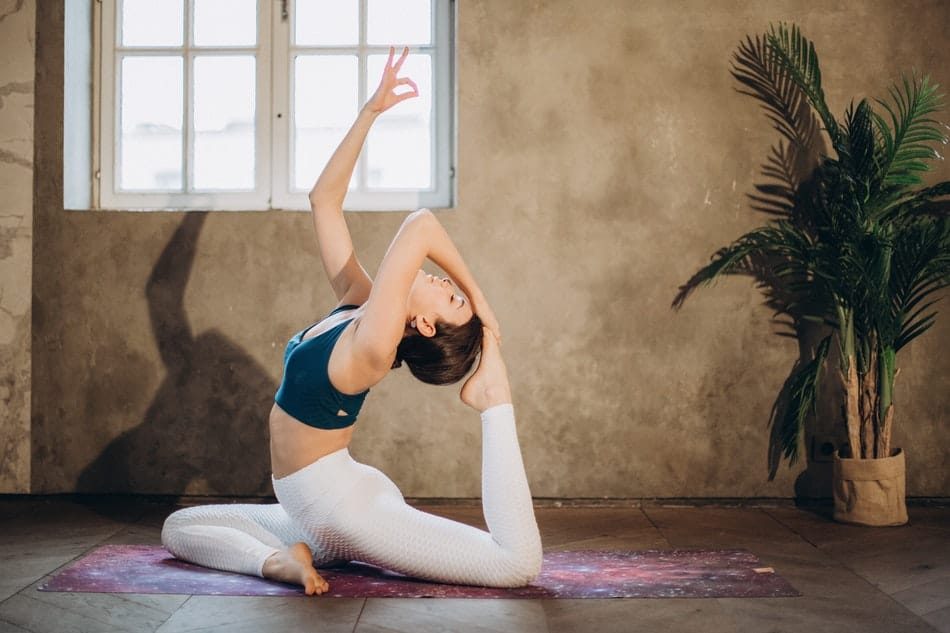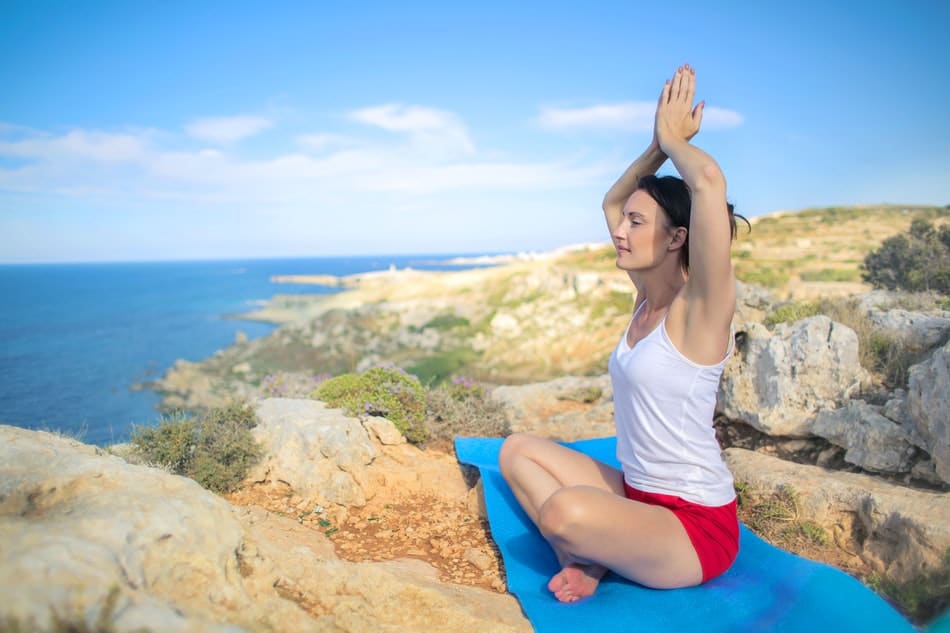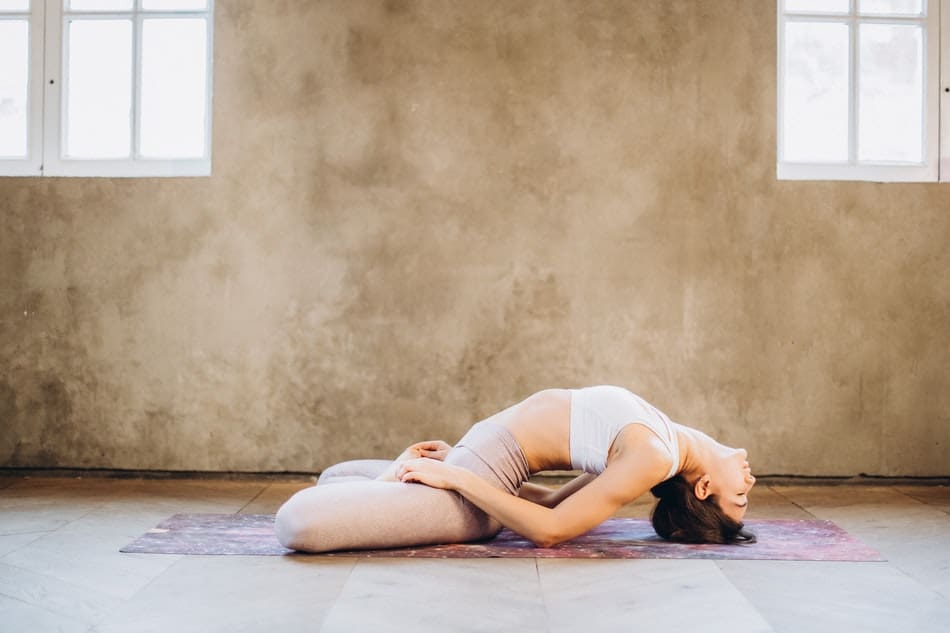If you’re looking to start practicing yoga, you may be wondering what the difference is between these two: Vini Yoga vs Hatha Yoga. Both of these types of yoga are very popular, but they have some key differences. This article discusses the main differences between Vini Yoga and Hatha Yoga, so you can decide which one is right for you!
Vini yoga is a type of adaptive yoga that is tailored to the individual needs of the student. This means that each class is different, as the teacher adapts the poses and sequences to fit the students’ abilities. Hatha yoga, on the other hand, is a more traditional style of yoga that focuses on holding poses for longer periods.
What Is Vini Yoga?
Vini Yoga is a system of therapeutic yoga developed by Desikachar, the son of Krishnamacharya. Vini means “to guide” or “to lead,” and yoga means “union.” Thus, Vini Yoga can be translated as “yoga that leads to union.” The goal of Vini Yoga is to bring the practitioner into a state of oneness with the universe.
Desikachar based Vini Yoga on Krishnamacharya’s teachings, which emphasize breath work (pranayama), mudras (hand gestures), bandhas (body locks), and Drishti (gaze points). However, he also added his innovations, such as the use of props and modifications for students with injuries or chronic conditions.
Vini Yoga is a slow and gentle form of yoga that is suitable for all levels of students, from beginners to advanced practitioners. It is an ideal practice for those who are seeking a more therapeutic approach to yoga, as it can be customized to each individual’s needs.

What Is Hatha Yoga?
This type of yoga is all about doing physical postures. It is the most popular type of yoga in the West, and is often what people think of when they think of “yoga.”
However, Hatha yoga is just one type of yoga, and there are many different styles of Hatha yoga. Some common styles include Iyengar yoga, Ashtanga yoga, Vinyasa flow yoga, and Bikram yoga.
While all types of Hatha yoga focus on the physical aspects of the practice, each style differs in its approach. For example, Iyengar Yoga focuses on alignment and precision, while Ashtanga Yoga emphasizes a more vigorous, flowing practice.
Vini Yoga vs Hatha Yoga: Key Differences
Vini yoga and hatha yoga are two of the most popular styles of yoga. Though they share many similarities, there are also several key differences between them. Here are five of the most important differences between Vini yoga and hatha yoga:
- First, Vini yoga is a much more gentle form of yoga than hatha yoga. Vini yogis believe that the practice should be adapted to each individual’s needs, so they focus on creating a safe and comfortable environment for students. Hatha yogis, on the other hand, believe in pushing their students to their limits to achieve results.
- Second, Vini yoga focuses heavily on breath work and pranayama (breath control). This is because the vini yogis believe that the breath is the life force that connects us all. Hatha yogis also believe in the importance of breathwork, but they place a greater emphasis on physical postures.
- Third, vini yoga emphasizes alignment and proper form in each posture. This is because the vini yogis believe that alignment helps to prevent injuries and allows students to get the most out of each pose. Hatha yogis are less concerned with alignment and focus more on flowing through their sequences quickly.
- Fourth, vini yoga classes typically last for 60-90 minutes, while hatha yoga classes can last up to two hours. This is because vini yogis believe that students should only practice for as long as they feel comfortable. Hatha yogis believe that longer classes are necessary to achieve results.
- Finally, vini yoga is best suited for beginners and those who are looking for a gentle practice. Hatha yoga is better suited for intermediate and advanced students who are looking for a more challenging workout.
So, which style of yoga is right for you? If you’re not sure, it’s best to try out both and see which one feels better for your body and your mind. Remember, there’s no wrong way to practice yoga – the most important thing is that you find a style that works best for you!

How Often Should I Practice Yoga?
The answer to this question depends on your goals and objectives. If you want to simply maintain your health, two or three times a week should suffice. However, if you want to improve your flexibility, strength, and endurance, then you will need to commit to a more regular practice. In general, the more you practice, the faster you will see results. So, if you are serious about making progress with your yoga practice, aim for four or five times a week. Remember, though, that even just once a week is better than nothing!
Vini Yoga vs Hatha Yoga: Which One Is Best For Weight Loss?
Is Vini Yoga or Hatha Yoga better for weight loss? If you’re looking to lose weight, both of these types of yoga can help. However, some key differences between the two may make one better suited for your goals than the other.
Vini Yoga is a more meditative form of yoga that emphasizes breathing and mindfulness. It’s often said to be more relaxing and less strenuous than other forms of yoga. This makes it a good choice if you’re new to yoga or looking for a low-impact workout.
Hatha Yoga is a more physical form of yoga that includes more challenging poses and sequences. It’s often seen as a more challenging workout, but it can also be very helpful for weight loss.
So, which one should you choose? If you’re looking for more relaxing yoga practice, Vini Yoga may be a good choice. If you’re looking for a more challenging workout to help with weight loss, Hatha Yoga may be better. Ultimately, the best yoga for weight loss is the one that you’ll enjoy and stick with long-term. Try out both and see which one works best for you.
Final Words
In conclusion, both Vini Yoga and Hatha Yoga have their unique benefits that can help practitioners in different ways. However, it is important to note that each type of yoga requires a different approach and may not be suitable for everyone. It is always best to consult with a qualified instructor before starting any new practice.
Related Articles

